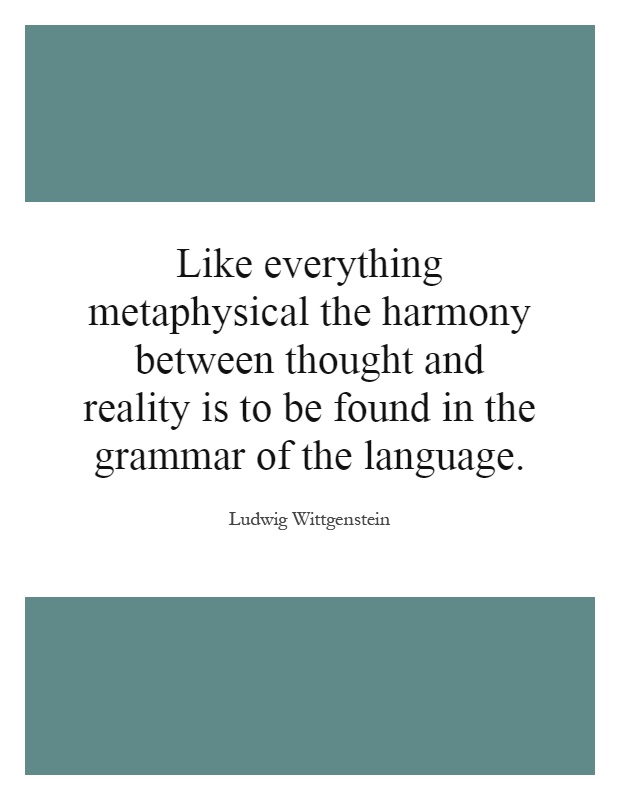Like everything metaphysical the harmony between thought and reality is to be found in the grammar of the language

Like everything metaphysical the harmony between thought and reality is to be found in the grammar of the language
Ludwig Wittgenstein, a renowned Austrian-British philosopher, is often considered one of the most influential thinkers of the 20th century. His work on language, logic, and the nature of reality has had a profound impact on the fields of philosophy, linguistics, and cognitive science. One of Wittgenstein's key insights is the idea that the relationship between thought and reality is fundamentally tied to the structure of language.In his famous work, the Tractatus Logico-Philosophicus, Wittgenstein argues that language is not simply a tool for expressing thoughts or ideas, but rather a system of rules and conventions that shape the way we perceive and understand the world. According to Wittgenstein, the meaning of a word or a sentence is not determined by some abstract correspondence with reality, but rather by its place within a linguistic framework. In other words, the harmony between thought and reality is not to be found in some transcendent realm of metaphysical truth, but rather in the grammar of the language we use to describe the world.
For Wittgenstein, language is not just a means of communication, but a way of structuring our experience of reality. The rules of grammar, syntax, and semantics that govern language are not arbitrary conventions, but rather reflections of the way our minds work and the way the world is structured. In this sense, language is not just a tool for representing reality, but a fundamental part of the way we perceive and understand the world.
Wittgenstein's emphasis on the importance of language in shaping our understanding of reality has had a profound influence on a wide range of disciplines, from philosophy to psychology to artificial intelligence. His ideas have inspired generations of thinkers to reconsider the relationship between language, thought, and reality, and to explore the ways in which our linguistic practices shape our understanding of the world.












 Friendship Quotes
Friendship Quotes Love Quotes
Love Quotes Life Quotes
Life Quotes Funny Quotes
Funny Quotes Motivational Quotes
Motivational Quotes Inspirational Quotes
Inspirational Quotes